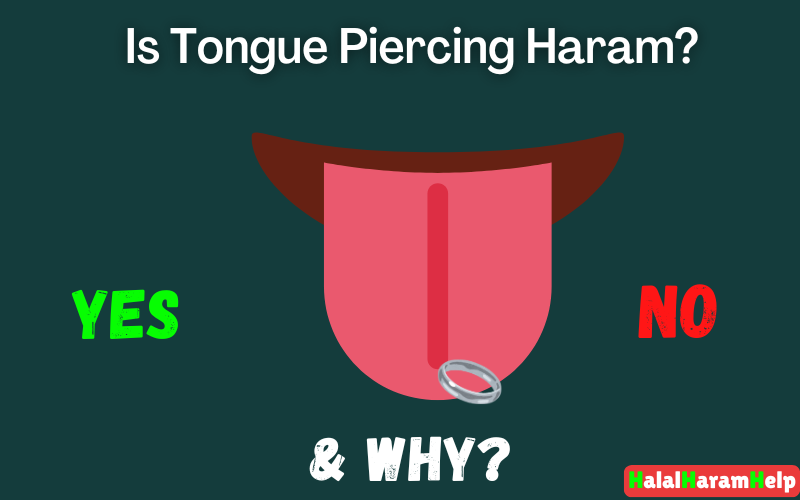In Islam, the question of body modification practices, such as tongue piercing, has been the subject of much debate.
Many scholars agree that tongue piercing is considered haram (forbidden) due to the harm it causes to the body and the lack of any religious justification for such an act.
This article will explore why tongue piercing is haram, provide insights into the Islamic perspective on body modifications, and offer guidance on avoiding this practice.

Why Is Tongue Piercing Considered Haram?
There are several key reasons why tongue piercing is considered haram in Islam:
Harm to the Body: Islam places great importance on the preservation of the body, viewing it as a trust from Allah.
Any act that causes unnecessary harm or damage to the body is considered a violation of this trust. Tongue piercing involves puncturing the tongue with a needle, which can lead to physical harm, infections, and other complications.
Therefore, it goes against the teachings of Islam, which prohibit unnecessary bodily harm.
Unnecessary Pain: Islam discourages inflicting pain on oneself without a valid reason, particularly when it serves no beneficial purpose.
Tongue piercing involves pain during the procedure and potential discomfort during healing. Since there is no medical or religious justification for this pain, it is considered inappropriate in Islam.
Deviation from Allah’s Natural Creation: Islam emphasizes following the natural way of creation as established by Allah. Body modifications, such as tongue piercings, alter the natural state of the body and are seen as unnecessary and unnatural.
Islam does not support altering the body in ways that stray from its original form unless there is a clear, beneficial purpose, such as medical treatment.
No Religious or Cultural Basis: Unlike ear and nose piercings, which have been practiced by women for beautification purposes and are seen as permissible in Islam, tongue piercing is neither mentioned in the Quran nor the Hadith (teachings of the Prophet Muhammad, peace be upon him).
Therefore, it has no cultural or religious basis and is not encouraged or practiced by Muslims.
Medical Risks: Piercing the tongue can lead to a variety of medical risks, including infections, nerve damage, excessive salivation, and difficulty speaking or eating.
These potential health complications further reinforce the notion that tongue piercing is harmful and against Islamic principles.
You might also like to know is ear piercing haram.
Is Tongue Piercing Allowed For Women?
While women in Islam are permitted to pierce their ears and nose, these practices are only allowed when done for beautification purposes and do not involve harming the body.
However, tongue piercing does not fall under these exceptions. In fact, both men and women are prohibited from tongue piercing in Islam because it involves unnecessary harm to the body and does not provide any legitimate benefit.
How To Avoid Tongue Piercing?
If you are considering getting a tongue piercing, it is essential to reflect on the consequences from both a religious and health perspective. Here are some tips to help you avoid getting your tongue pierced:
Educate Yourself: Understanding the Islamic teachings surrounding body modifications will help you make informed decisions. Recognize that actions causing harm or altering the body without purpose are forbidden.
Seek Guidance: Consult with religious scholars or imams who can offer further clarification on the subject and help you understand why this practice is considered haram.
Focus on Healthy Self-Expression: There are many ways to express yourself without causing harm to your body. Consider alternative forms of self-expression, such as through fashion, art, or personal development.
Consider the Long-Term Impact: Even if you later regret a tongue piercing, removing it may not undo the damage, and scars or health issues may persist. Think about the long-term consequences before making a decision.
Also see is belly piercing haram.
Conclusion
In conclusion, tongue piercing is haram in Islam for both men and women due to the harm it causes to the body, the unnecessary pain it inflicts, and the lack of any religious justification for the practice.
Islam emphasizes the preservation of the body and the avoidance of unnecessary modifications, particularly those that can result in harm.
As Muslims, it is important to respect the natural form created by Allah and avoid practices that go against His teachings.


